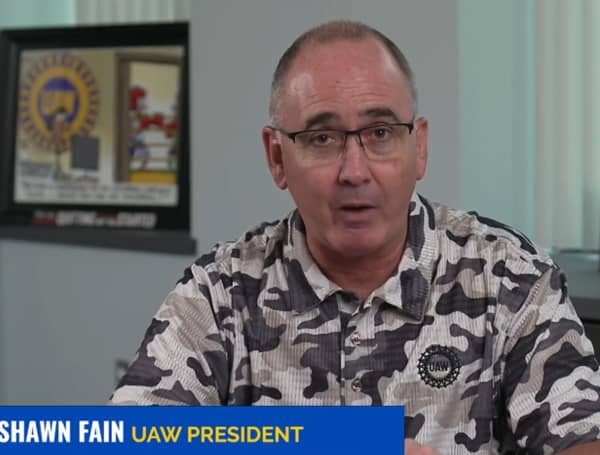The United Auto Workers (UAW) union has taken a significant step in its ongoing strike against three Detroit automakers by announcing a strike against a major Ford truck plant in Louisville, Kentucky.
This move comes as the UAW seeks to exert pressure on the automakers to negotiate a fair contract.
The members of the UAW at this Ford plant, which produces the heavy-duty F-Series pickup trucks and large SUVs, have left their jobs in a bid to make their demands heard.
UAW President Shawn Fain stated in a press release that the union has waited long enough for Ford to come to the bargaining table for a fair contract.
In the news: Ford Pauses Construction Of Key EV Battery Plant In Michigan
Fain expressed frustration with the lack of progress in negotiations and the need for stronger action to convey the seriousness of the union’s demands. The decision to expand the strikes to the Ford truck plant in Kentucky is seen as a bold move by the UAW leadership to keep the pressure on Detroit automakers.
Ford, in response, has called the expansion of the strike “grossly irresponsible” and has accused the UAW leadership of wanting to create “industrial chaos” to keep the automakers at a disadvantage.
The tensions between the UAW and the automakers have been escalating since the strikes began in September, with each side accusing the other of not negotiating in good faith.
Since the strikes started, the UAW has targeted a select number of plants from each of the Detroit automakers rather than having all UAW members go on strike simultaneously. This strategic approach has allowed the union to focus its efforts and maximize the impact of the strikes. Approximately 25,000 workers across the three automakers have walked off their jobs, affecting production and causing disruptions in the supply chain.
The future of electric vehicles (EVs) has become a focal point of the negotiations between the UAW and the automakers.
The UAW is pushing for the unionization of joint-venture EV battery factories as part of the national master contract. The union believes that unionizing these plants will help secure jobs and ensure fair wages for workers affected by the transition to EV production.
Battery plants have become a major point of contention in the negotiations.
The UAW’s demand for union representation in these facilities is seen as a crucial step in protecting the rights of workers and ensuring their economic stability in the face of industry-wide changes. The automakers, on the other hand, have expressed concerns about the potential impact of unionization on their operations and profitability.
In the news: Florida Illuminates Blue And White In Solidarity With Israel
The strikes have led to layoffs in factories that are not directly affected by the strikes. The automakers argue that the layoffs are a result of the strikes, as the production disruptions have forced them to reduce output and adjust their workforce accordingly.
However, the UAW disputes this claim, alleging that the layoffs are part of a pressure campaign by the automakers to weaken the union’s bargaining position.
The layoffs have mainly affected factories that produce parts for the assembly plants directly impacted by the strikes. The job cuts have been reported in states such as Michigan, Ohio, Illinois, Kansas, Indiana, and New York.
The UAW is adamant that these layoffs are unjustified and are a tactic employed by the automakers to coerce UAW members into accepting less favorable terms in the contract negotiations.
Striking workers are receiving financial support from the UAW’s strike pay fund, providing them with $500 per week.
This financial assistance helps mitigate the economic impact of the strikes on the workers and their families. In contrast, workers who have been laid off may qualify for state unemployment aid, which can vary based on individual circumstances, potentially resulting in a different level of financial support.
The UAW has vowed to ensure that any worker laid off during the strike will not be left without an income.
The union stands firm in its commitment to protect the rights and livelihoods of its members throughout the negotiation process.
The UAW’s strike pay fund serves as a safety net, providing financial stability to striking workers and enabling them to continue their fight for better working conditions.
Android Users, Click To Download The Free Press App And Never Miss A Story. Follow Us On Facebook and Twitter. Signup for our free newsletter.
We can’t do this without your help; visit our GiveSendGo page and donate any dollar amount; every penny helps

